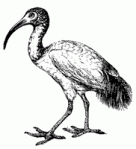Q&A: On the Sons of Gods
From the about page comes this question:
Here is something I ignored when I translated Job and I don’t think I should have. In chapter 1 we get the b’nei ha-elohim. In chapter 38 we get the b’nei elohim without the definite article. I am thinking that the first should be the children (or sons) of the gods or of the mighty, and the second the children of God? This is without looking up Tur Sinai and all the other references I used that are since back in the library — so I ask you instead (thanks).
Don’t thank me yet, since calling this “Q&A” might be a stretch. I don’t have much of an answer.
The difference between ha-elohim and elohim seems like it has to be important, but I’ve yet to find a satisfactory explanation of the two. I do know that the simplistic approach of using “the” in English for ha- here doesn’t work. These may be dialectal variants, they might be the same thing, or they might differ in ways we haven’t figured out yet.
In general I think it’s a good idea to use different English for different Hebrew, but in this case, I don’t think we have that option. “Children of the gods” versus “children of God” is likely to be wrong, as is “children of the mighty.”
Though both ha-elohim and elohim are common, we find b’nei ha-elohim only in Genesis 6 and twice in Job, and b’nei elohim only in Job 38:7.
So an important related question is who these god children are. The Jewish Study Bible (which I highly recommend) has this to say:
[Job 1:]6. The divine beings presented themselves before the Lord: Similar meetings of the Lord enthroned on His heavenly throne and all the heavenly host standing before Him on either side are reported by the prophet Micah son of Imlah in 1 Kings 22.19-23, by the prophet Isaiah in Isa. ch 6, and in Ps. 82 and Dan. 7.9-10. The members of the heavenly court, here and in Ps. 82 called divine beings (here lit. “sons of the gods”; in Ps. 82.2 lit. “gods”) are called in 1 Kings ch 22 “the heavenly host”; in Job 4.18 they are called “servants” and “angels”; in 15:15 they are called “holy ones” and “the heavens,” while in 25:5 they are identified with the moon and stars, who, with the sun, are called “the whole heavenly host” in Deut. 4.19. Typically, these divine beings, though they have great power, may not act independently of God. [My emphasis.]
The LXX translates “angels of the God” in Job 1 and 2, and “my angels” in Job 38.
With all of this in mind, I think both phrases refer to the same group. (Maybe the b’nai here is like the word b’nai in b’nai yisrael, and these are the Lordites.)
At any rate, my suggestion is to pick a phrase that’s likely to be accurate, capitalize it, and hope for the best.
Pizza With Fungus
A pizzeria in Eilat, Israel, offers plain pizza and “pizza with fungus,” according to the large English menu at the restaurant.
Of course they meant not “fungus” but “mushrooms.” Unfortunately, the modern Hebrew for both English words are the same.
What went wrong here is mostly a matter of connotation. While mushrooms are indeed a kind of fungus, the word “mushrooms” has connotations of edibility, while we English speakers know that “fungus” does not.
I fear that we frequently see this sort of mistake in English translations of the Bible. Just to pick one example (which I’ve already mentioned), “inward parts” doesn’t seem right for the Hebrew tuchot.
Where’s the Poetry?

Ibis
Job 38:36 is an interesting example, because no one knows for sure what the words there mean, particularly tuchot and sechvi. Still, the poetic nature of the line is clear.
Yet we end up with translations like, “Who has put wisdom in the inward parts, or given understanding to the mind?” (NRSV) and “Who gives the ibis wisdom [about the flooding of the Nile], or gives the rooster understanding [of when to crow]?” (TNIV). And the NAB offers the particularly unfortunate, “Who puts wisdom in the heart, and gives the cock its understanding?” It doesn’t sound poetic to my ear.
With so many possibilities for what the Hebrew words mean — the LXX expands the options by translating, “And who has given women skill in weaving, or knowledge of embroidery?” — surely no one can feel locked into any one word or phrase. Yet still we don’t have poetry.
Why?
And does anyone have a suggestion for a poetic rendition?



